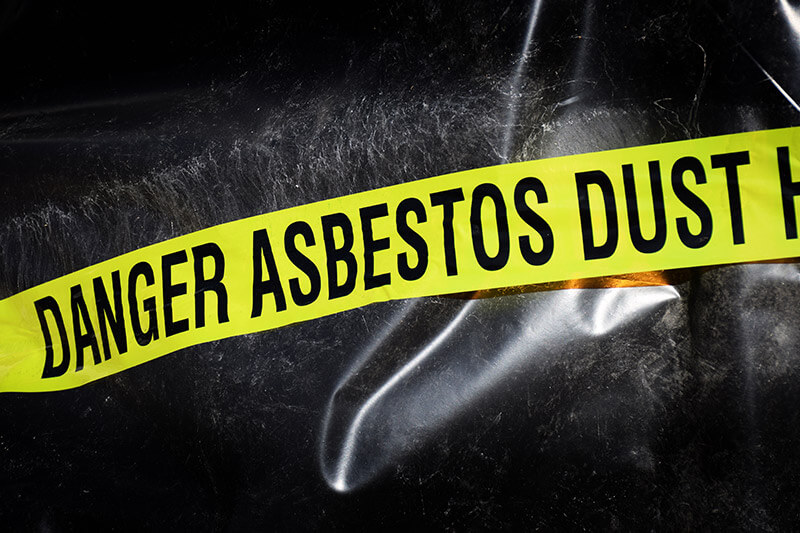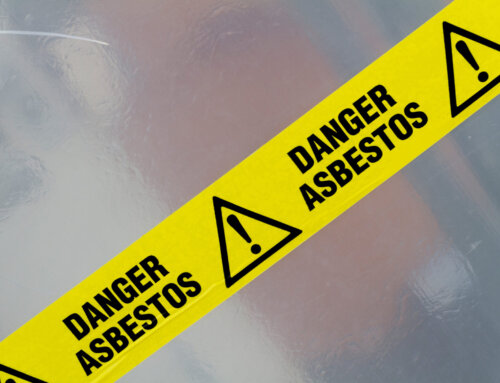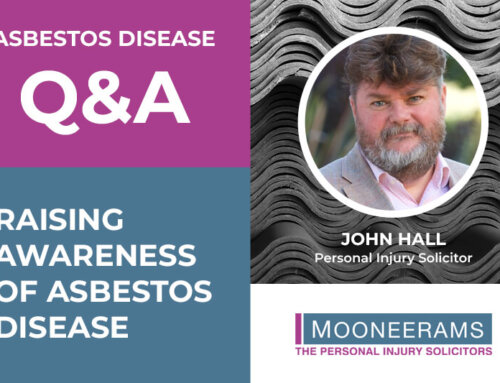On average one hundred people die from asbestos related illnesses, every week. During the same period, approximately the same number get diagnosed with asbestos disease.
Statistics tell us that a significant number of them have been:
- exposed to asbestos by a former employer or employers, because,
- their employer was negligent and /or in breach of statutory duty, i.e., it should have been reasonably foreseeable to their employer, that the asbestos exposure was liable to cause them harm, and
- they suffered personal injury caused by the asbestos to which they were exposed.
We know that asbestos disease victims do not start to get symptoms of their illness for many, many years after they were exposed to the asbestos fibres that are responsible for causing mesothelioma, asbestosis, pleural thickening, or asbestos-related lung cancer. And when we say many years, we mean rarely less than ten years and up to as many as fifty!
This period is called the latency period and it is the main reason why asbestos disease has not been consigned to the history books.
Making an asbestos disease claim
If you have been exposed to asbestos at work as a result of your employer’s negligence; they should have reasonably foreseen the exposure to asbestos was likely to cause you harm and they were in breach of their duty of care to you, you can make an asbestos compensation claim. After all, an asbestos claim is another type of accident at work claim.
What makes asbestos claims much harder than many other types of employers’ liability claims is that in most cases, a claimant asbestos sufferer must bring their claim against an employer that they may last have worked for decades ago. If the claimant had many different jobs, they might not be able to say where they were exposed.
A lot of asbestos victims don’t seek out legal advice from an experienced asbestos disease solicitor due to a belief they can’t claim compensation from a company they worked for so long ago, because it has long since ceased trading.
Even if your former employer no longer exists, you may be able to make an asbestos compensation claim
It’s understandable to think that you can’t make an asbestos claim if you get diagnosed with asbestos, and realise the cause of the illness was asbestos exposure going up to 40 years ago. If the company has ceased trading, as many from the 1970s and 80s have, then you may think any chance of making a claim disappeared when the company shut down.
Thankfully, Mooneerams work in partnership with a highly experienced asbestos disease solicitor, who has specialised in helping asbestos victims to pursue asbestos compensation claims, for over 25 years.
How do you claim asbestos compensation from a company that is no longer in business?
The key to claiming from a defunct company is first of all knowing the name of the company. For someone who changed jobs frequently, pinning down who you worked for and when can be tricky.
It’s surprising how many of us keep letters and formal documents for a lifetime, so if you are unsure of the name of the company that might have caused your asbestos exposure, it’s worth going through old paperwork to see if it produces anything to jog your memory.
HMRC National Insurance records as proof of employment history
Your asbestos solicitor can help considerably. Since 1961, employers have been required to send the national insurance records of all their employers to HMRC. Your solicitor can apply for details of your employment record from HMRC. When received, this provides a list, almost like a CV, of your places of work setting out when you started employment with a firm and when you left their employ to go elsewhere.
It’s not a foolproof system. Sometimes there are unexplained gaps in a person’s work history and as previously stated, the records only started after 1961. However, more often than not obtaining the claimant’s work records is of great assistance in identifying the relevant employer defendant in an asbestos disease claim.
Companies House
Companies House provides a free web check service that can provide basic information about companies such as:
- Name
- Company Address
- Details of past and present directors
- Changes of Company name
- Insolvency history
- More detailed information going back over twenty years can be obtained for a fee.
Employer’s liability insurers
As much as information from HMRC and Companies House can assist in identifying the relevant company or companies you worked for and which you believe were responsible for causing you to get asbestos exposure, the important details required to pursue a successful claim are your former employer’s liability insurance details, that were in force at the time you worked for them.
Since 1972 employers have been obliged to carry employers liability insurance (EL). In a nutshell, this is a form of insurance that ensures that if an employee is injured in an accident at work and they bring a claim against their employer, they will receive any compensation agreed or awarded by a court, from the insurance company.
With asbestos claims, it is important that the policy of insurance was in force when the employee was being exposed to the asbestos which was the cause of the disease, the subject of their present-day asbestos claim.
Even now our asbestos solicitors still deal with claims dating back to pre-1972, when not all employers carried EL insurance.
Going through the process of establishing the insurance details of companies against whom asbestos claims are to be made, is one of the main reasons why you should choose to ask a specialist asbestos disease solicitor to handle your asbestos-related disease claim.
Our asbestos lawyer has had the benefit of specialising in this complex field of law for over 25 years. In that time, he has built up a detailed database of companies and their employers’ liability insurance details. He also has access to other registers to help find the relevant insurer in a particular case, such as the database of historic insurance details, kept and updated by the ELTO: Employers Liability Tracing Office, a body that is funded by the Association of British Insurers (ABI).
There are times when an insurer can’t be traced or the company simply didn’t have any EL insurance, but if there is insurance our trusted asbestos partner will expect to find the policy details in force in the majority of cases.
Proving your asbestos claim
Just because your former employer’s insurance details have been traced doesn’t mean your asbestos claim will automatically be won, as your case still needs to be proved. Nevertheless, finding out the identity of the company’s insurers and getting confirmation that there was a policy in force at the time you were exposed to asbestos, is a major step towards progressing your asbestos compensation claim.
If, despite your solicitor’s best efforts, a policy of insurance can’t be traced and your former employer no longer exists, unfortunately, a claim cannot be pursued.
However, for mesothelioma sufferers, there is a final port of call if a mesothelioma claim would succeed but there is no traceable insurance company, and the employers are no longer in business.
Help is at hand, in the form of the Diffuse Mesothelioma Payment Scheme (DMPS), a government initiative, funded by the insurance industry. An application to the fund can be made for a significant lump sum payment based on age at the time of application being made. In addition, your solicitors’ legal fees for preparing and submitting the application will be paid up to a maximum sum of £7000.
Call Mooneerams now on 029 2199 1927 to talk to one of our experienced asbestos disease solicitors about making an asbestos compensation claim. Our initial advice is always free of charge. In most cases, our asbestos solicitor handles asbestos claims using a No Win No Fee agreement and doesn’t charge a success fee.




